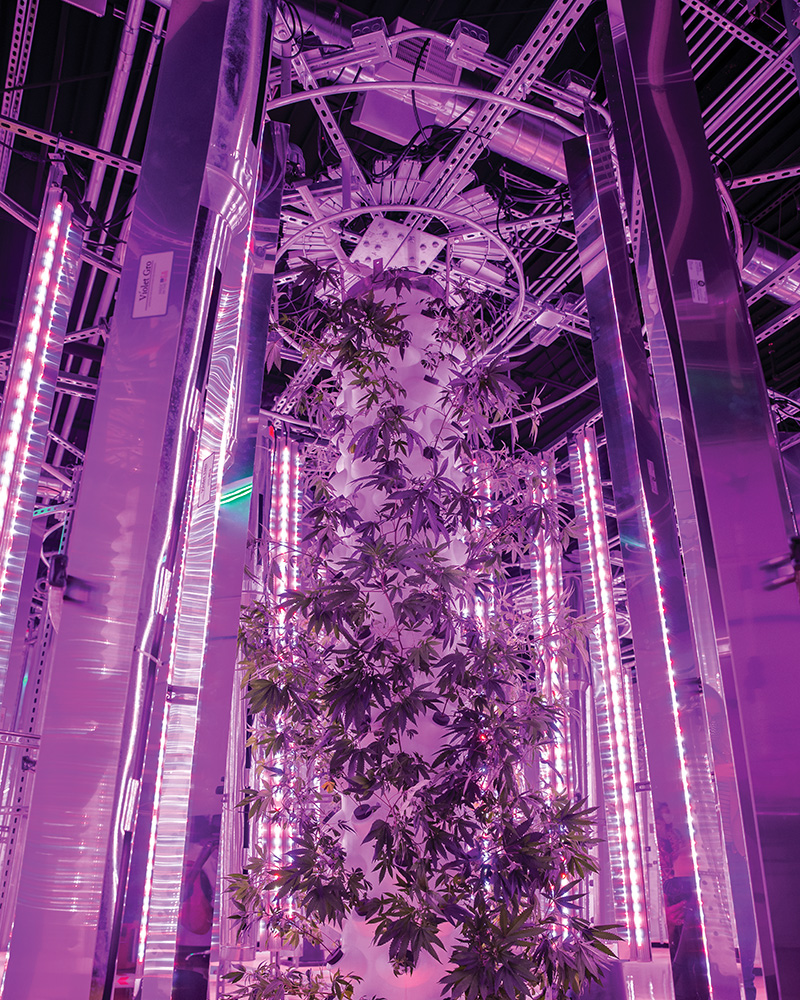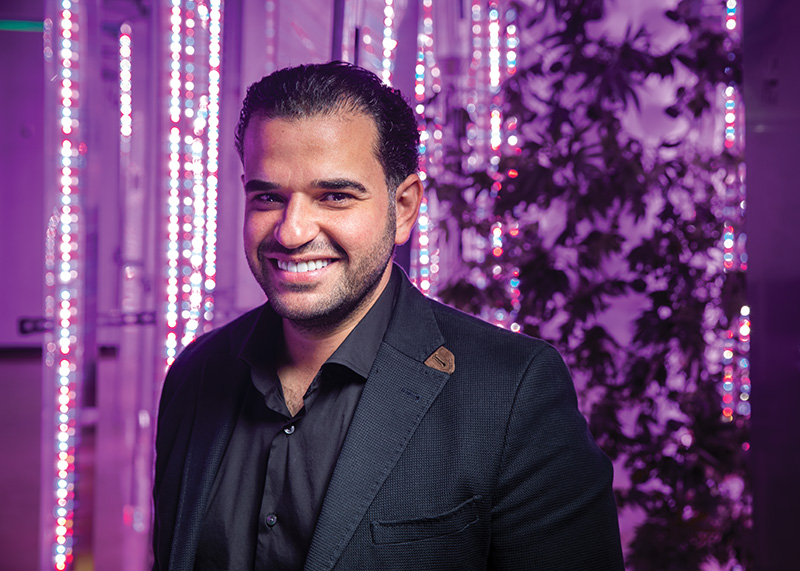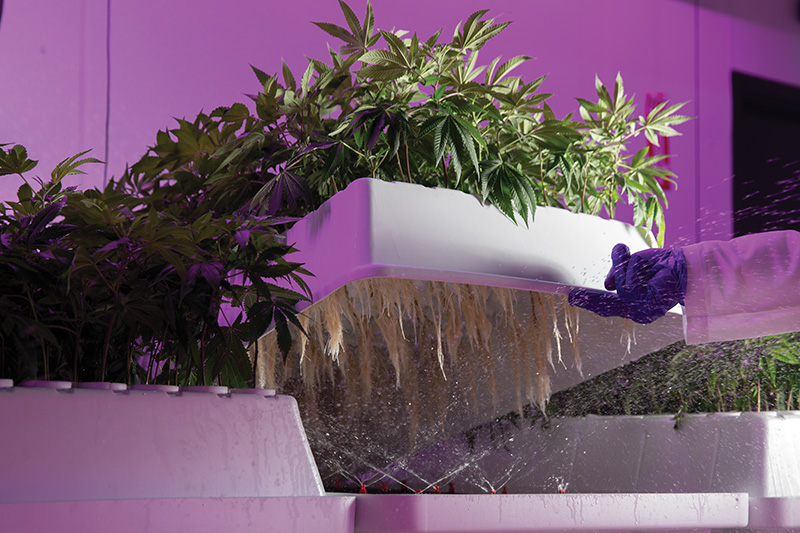
You could be forgiven if you thought, upon entering the sprawling leprechaun-green building in a desolate stretch of Livernois Avenue in Detroit, that you’d somehow ingested some hallucinogens.
Far from the rough, unkempt world outside, the labyrinthine halls and rooms of Future Grow Solutions serve up a psychedelic trip of sorts, all sparkling white-on-white, spaceship-like halls, labs of glossy yellow floors, and, most importantly, an orchard of cylindrical silver towers surrounded by arrays of multicolored LED lights.
Those high-tech planters, owner Mark Savaya is convinced, are — as the company name suggests — the future of cannabis agriculture. They’re hydroponic, which means the plants are grown indoors and without soil, using technology that controls hydration, nutrition, and light.
Each grow room is a 2,800-square-foot space with 20 towers that hold up to 102 plants a piece from which Savaya expects a consistent yield of up to 25 pounds of cannabis every eight weeks. As of October, Future Grow had one room with plants expected to hit maturity in December and planned to stagger two other grow rooms so a new harvest would be ready every month.

Eventually, Savaya says, he’ll have 10 active grow rooms at his 60,000-square-foot spread as well as spaces to process the bounty as smokable weed, oils, and edibles. He’s primarily focused on growing a supply for dispensaries with which he is affiliated, including one called Leaf and Bud that he plans to open on one end of the Livernois location.
It’s unclear when the space — which is expected to include a futuristic, modern-Vegas vibe complete with a baby shark in an aquarium and glass walls through which visitors can see the grow towers — will open because Detroit’s licensing program is undergoing major changes (see main story).
Yet Savaya’s real focus is more on popularizing the technology his team has developed, which he says produces more consistent product and uses a fraction of the energy of soil-based indoor grow farms.
“My company is leasing equipment to growers,” says Savaya, 37, of West Bloomfield, whose family immigrated from Iraq in the 1990s. “I want to show that I have a machine that cultivators can use to grow pot or grow hemp or grow vegetables.”

As of now, the Livernois location, once a Farmer Jack’s distribution center, is the only place he’s deployed the towers. He wants to first show a successful harvest before moving forward with lease deals on the equipment in a variety of Detroit suburbs. He says the towers are in use at a hemp-growing facility in Asheville, North Carolina, and a pot growing site in Tulsa, Oklahoma.
While some competitors insist growing in soil is key to flavors, textures, and compositions of cannabis flower the same way it is for wine grapes, Savaya extols the value of hydroponics.
“If you do soils, the soil’s not always the same, your THC levels are going to be up and down all the time,” he says. “We grow in water, so we’ll always have a consistent product.”
|
|
|









